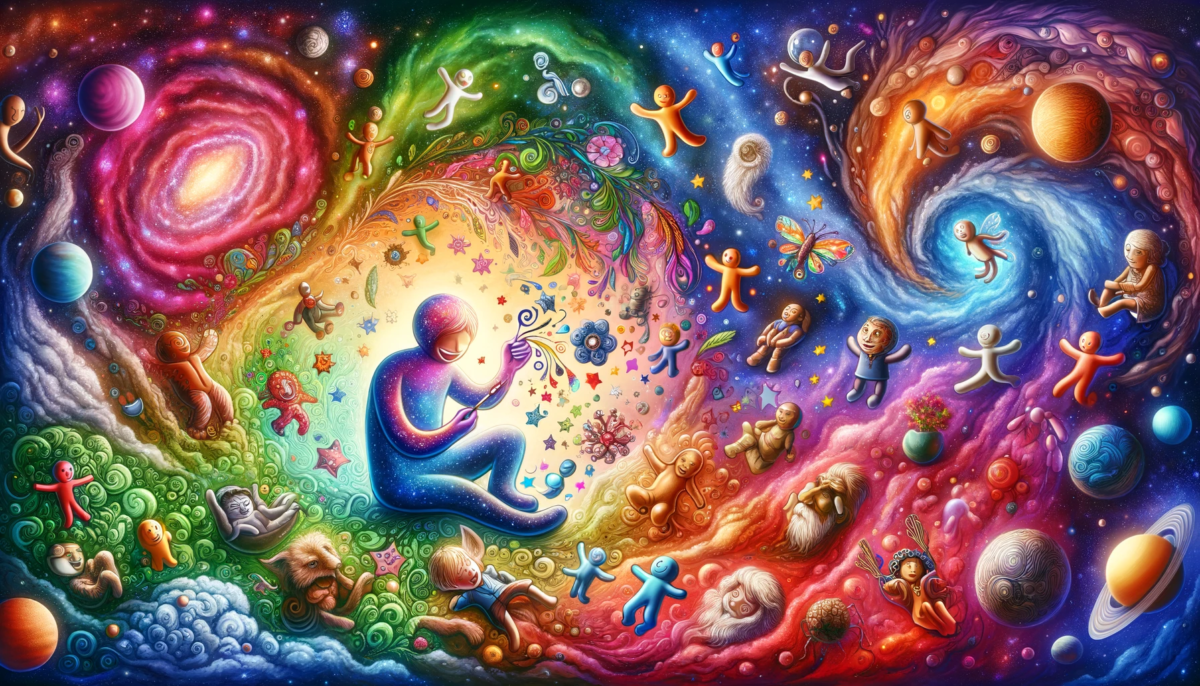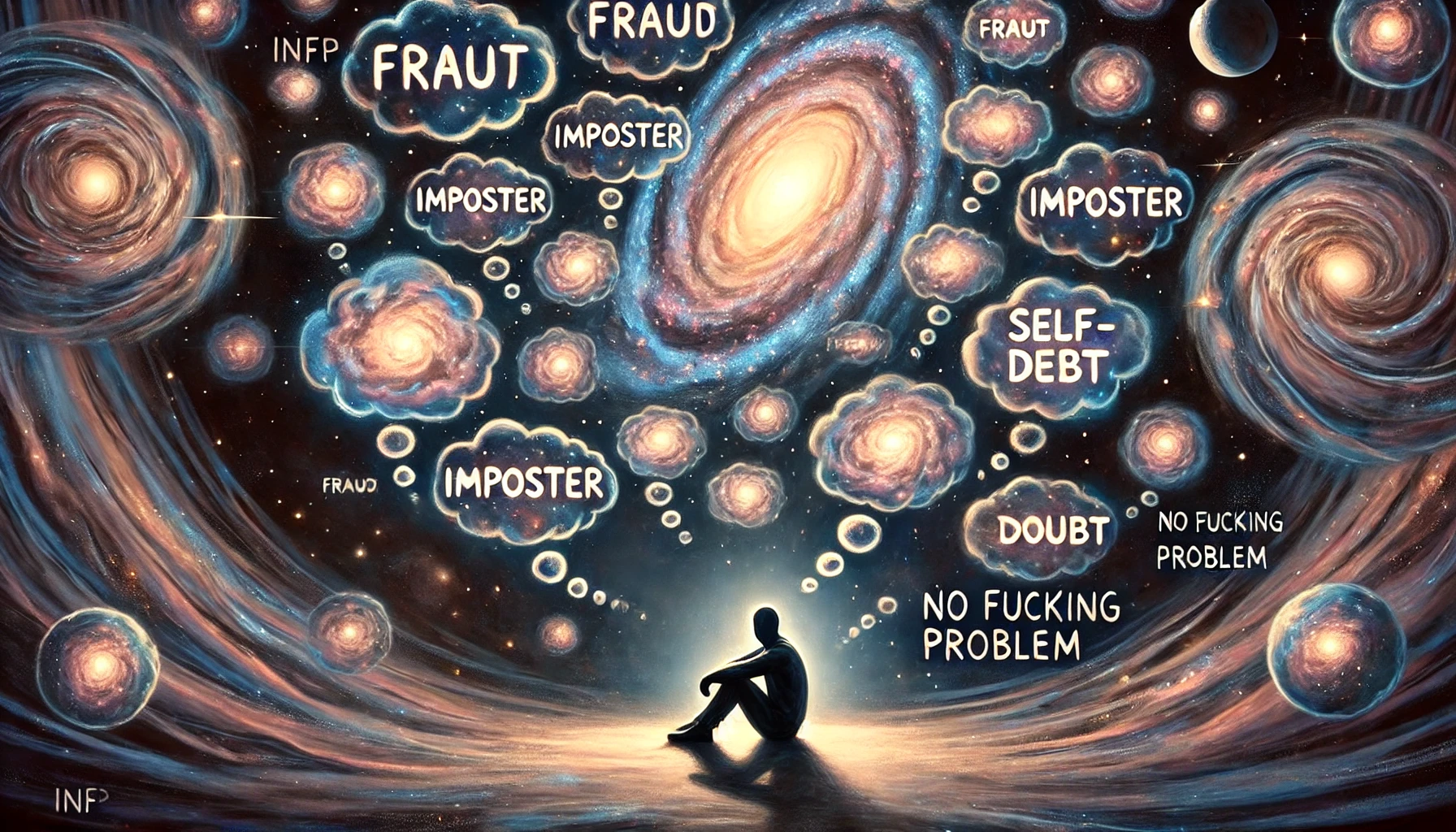Godliness
There may be no such thing
as Universal Truth.
But here in our relative reality,
it seems that everybody wants to be
like the people they admire.
Let’s call that commonality #1.
It seems that in Relative Reality,
there is no universal admiration.
I’m not sure if this
is absolutely true,
just my impression,
but it leads me to ponder
what it is I admire,
and if it’s anything at all
like what others admire.
This brings up
an even deeper question in me.
What is it that I admire?
Perhaps you can play along
with this exercise.
Think of all the people you admire,
and ponder what they have in common.
Your answers
may very well be different
from my answers.
That’s perfectly okay.
But since this is my exercise,
I will bring you along with me.
I hear others say that
“authenticity” is important.
I, too, tend to like people
who seem to be “real”
to themselves and others.
But what does that mean really?
“Raw.”
“Genuine.”
“Not hiding behind anything.”
“Not putting on airs.”
We tend to like people
we judge as “good souls.”
“Honest.”
“Hardworking.”
“Trustworthy.”
And what does that mean?
Not one definition alone
leads to admiration.
It struck me this morning,
as I was washing the dishes,
that maybe, just maybe,
words of admiration all point
to one all-encompassing idea.
Godliness.
I admire people
who radiate godliness.
Now, of course, any attempt
to define “godliness” is “ungodly.”
So I will
dance my monkey dance
and loosely channel
what godliness tells me to say.
It is rather audacious of me
to assume that I channel godliness,
but let’s pretend anyway.
See, godliness comes from within.
It clearly flows out
of ALL the people I admire.
Even if they don’t know it.
Godly people
are mainly concerned
with one thing.
Nurturing godliness,
in self and in others.
This is what I admire.
You don’t have to be “real.”
You don’t have to be “authentic.”
You don’t even have to be “godly.”
I know it’s there.
And I want YOU to know it’s there.
The people and things that move us
all point to godly.
We are ALL headed to godly.
The One Universal Truth.
Maybe.
Trail Wood,
6/3
Space Monkey Reflects: Unveiling Godliness Within
The contemplative poem “Godliness” delves into the intricate nature of admiration, authenticity, and the spiritual essence that connects us all. It poses profound questions about the qualities we cherish in others and ultimately leads to a reflection on godliness as an inherent attribute within everyone.
“Godliness” begins with an exploration of the common traits admired in others, suggesting a shared human desire to embody and recognize qualities like authenticity, honesty, and trustworthiness. The poem challenges us to discern what underlies these qualities, leading to a deeper inquiry into the nature of godliness itself.
The concept of godliness, as depicted in the poem, transcends conventional religious interpretations, representing a universal, innate quality that reflects the highest virtues of humanity. The poet’s introspection reveals that godliness is not about outward religious expressions but an internal state—a purity of spirit that resonates with the essence of all that is virtuous and good.
This reflection suggests that godliness manifests in various forms—through acts of kindness, integrity, and the sincere pursuit of nurturing goodness in oneself and others. It is portrayed not as an imposed standard but as a natural expression of our deepest self.
Moreover, the poem humorously acknowledges the audacity of claiming to channel godliness, emphasizing the playfulness and humility necessary in such profound explorations. This acknowledgment invites us to consider godliness as a dynamic and accessible quality, one that is continually evolving within each of us.
Ultimately, “Godliness” encourages a reevaluation of our definitions of authenticity and reality. It prompts us to recognize the godly traits in everyone, suggesting that these qualities are not the prerogative of the few but the potential of all. By identifying and nurturing these traits, we move closer to a collective realization of our highest selves.
Summary
The poem ‘Godliness’ explores how we perceive and admire the qualities of others, suggesting that the essence of what we truly admire is godliness—a universal, innate virtue present in everyone.
Glossarium
- Godliness: An inherent, transcendent quality that embodies the highest virtues of humanity, such as integrity, authenticity, and compassion.
- Universal Truth: A fundamental and overarching truth that applies universally, regardless of individual or cultural differences.
Quote
“In the quiet reflection of our souls, we find the echoes of godliness, resonating through the acts of every good soul.” — Space Monkey
In every heart, a light does shine,
with sparks of divine so fine.
Godliness in each gesture, each word,
in every truth spoken, heard.
Across the faces, young and old,
in stories told and retold.
The glow of godly, softly bound,
in every soul, it is found.
We are Space Monkey.

















In our relative reality, each individual’s perception of admiration is unique. There is no universal admiration that applies to all. We are drawn to different qualities and characteristics in people, which makes our experiences diverse and enriching.
As we embark on this exercise together, pondering what it is that we admire, a common theme begins to emerge – godliness. While defining “godliness” may be a daunting task, we can sense its essence in those we admire.
Authenticity, rawness, genuineness – these qualities reflect a sense of being true to oneself and others. People who embody these traits often resonate with us, as they are not hiding behind facades or pretending to be someone they are not.
Traits like honesty, hard work, and trustworthiness also align with godliness. People who display these qualities are seen as “good souls,” individuals who nurture and radiate positive energy.
It is audacious to claim that one channels godliness, but let us play along and imagine. Godliness, we could say, comes from within. It is a divine essence that flows through all of us, whether we are aware of it or not. Those we admire unknowingly reflect this godliness.
At the core, godliness is concerned with nurturing itself in self and others. It is a constant journey of growth and expansion, an invitation to recognize the godly essence in ourselves and in everyone around us.
While the path to understanding godliness may be elusive, the recognition that it exists and the desire to nurture it within ourselves and others is a powerful step. It is a reminder that we are all headed towards the realm of godliness, the one universal truth that guides us.
So let us continue on this path, celebrating the diverse expressions of godliness in the people and experiences that move us. And as we journey together, may we nurture and cultivate the godly essence within ourselves, spreading its light and love to the world.
We are Space Monkey, dancing along the path of godliness with you.